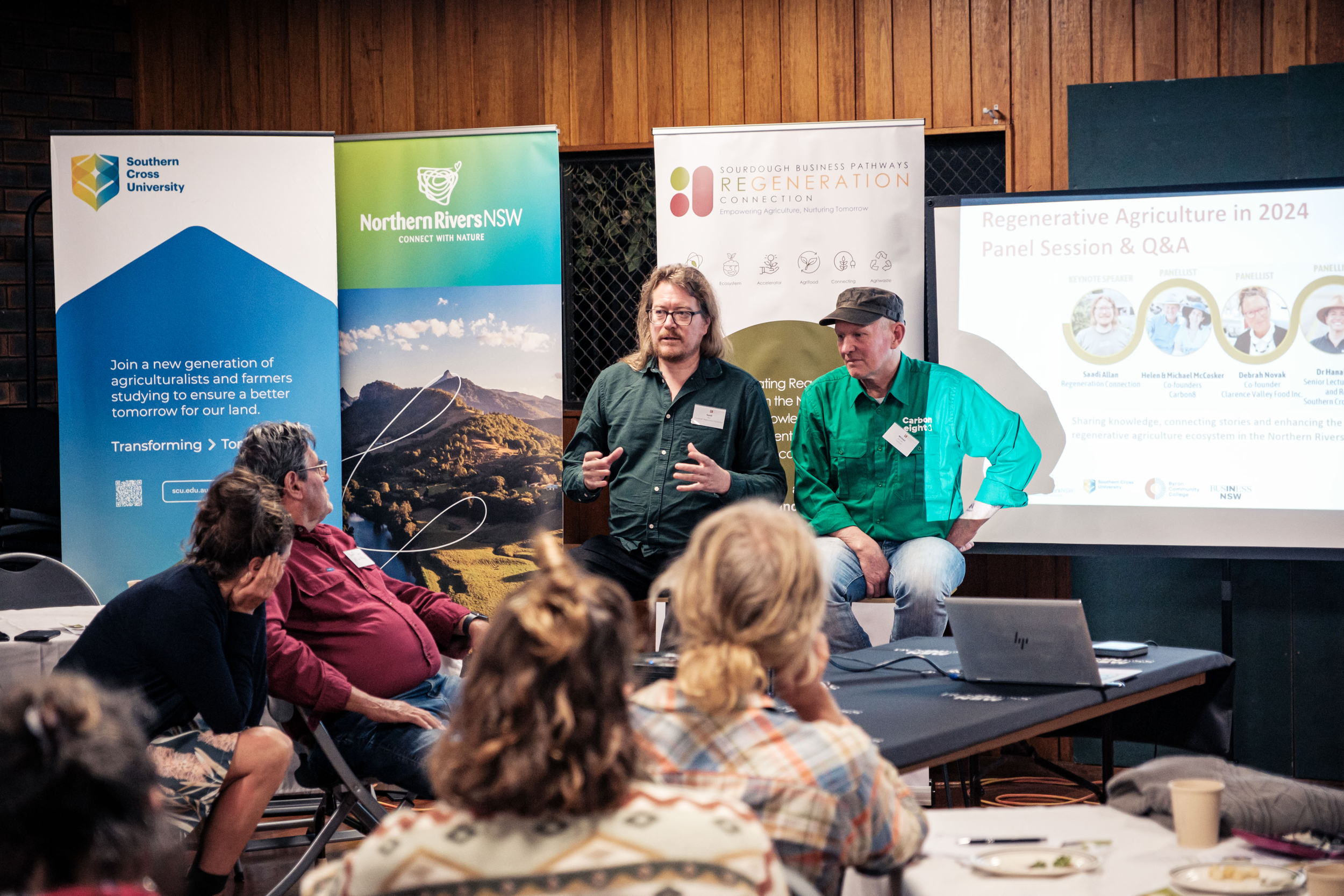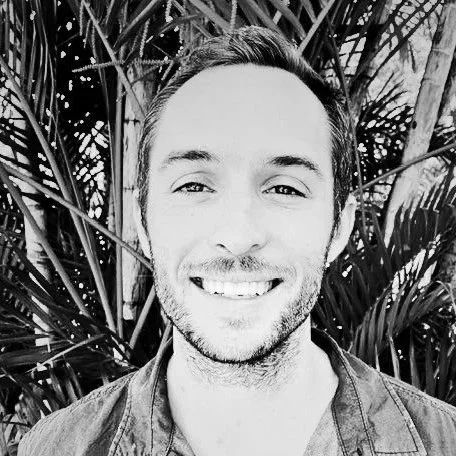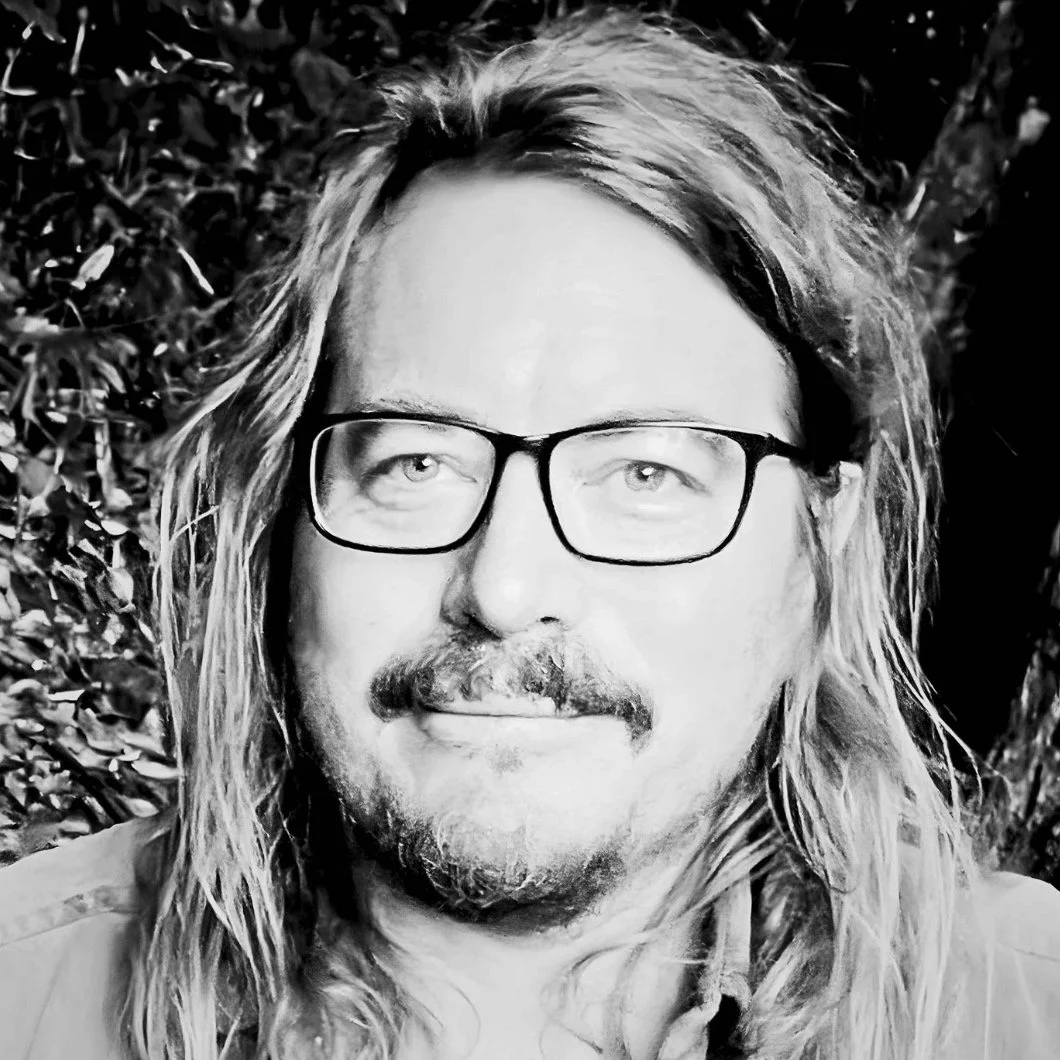Saadi Allan On Regenerative Agriculture And Breaking Down Social Enterprise Silos
Saadi Allan is an entrepreneur and marketing professional with a strong commitment to regenerative business practices.
As the co-founder and former CEO of Subpod, an innovative composting and gardening brand, he helped the company gain a loyal community of over 60,000 waste warriors across 26 countries, who collectively divert more than 240 tonnes of food waste from landfill every week.
Previously, Saadi served as the Head of Marketing at BeeInventive, creators of the groundbreaking Flow Hive. He led the team behind their record-breaking Indiegogo crowdfunding campaign, which raised USD$12.4 million in 30 days, and helped guide the fledgling company to become a market leading international brand. Under his guidance, the Flow Hive marketing team earned the prestigious 2016 D&AD White Pencil at Ad Week in New York for outstanding work in design and advertising that promotes positive change.
Saadi’s passion for environmental and social regeneration guides his career. He now serves as a growth advisor and fractional CMO to purpose-driven businesses, helping them scale while maintaining their commitment to positive impact.
Saadi discusses the intricate process of designing a regenerative and environmentally sustainable social enterprise which will effectively co-exist with natural ecosystems and help society to thrive.
Highlights from the interview (listen to the podcast for full details)
[Tom Allen] - To start off, can you please share a bit about your background and what led to your passion for marketing and regenerative businesses?
[Saadi Allan] - I've always been immersed in social and environmental impact. My parents were activists, and I grew up in the hills of Northern New South Wales around the intentional community scene.
Both of my parents were Buddhist teachers who worked across a range of social and environmental movements. This included the fledgling environmental movement which led to the protest at Nightcap National Park, which resulted in the establishment of some of the first national parks in Australia.
I was growing up around a lot of passionate people who were looking at problems like logging or refugees throughout the late 90’s and the early 2000’s.
Since my teenage years, I’ve been trying to be active in that space in different ways no matter where my life went. Throughout high school (even though I left early), I was part of an environmental group.
I started to see a need for something more than just the protest activism I was used to. I started to get interested in what it would look like to work more in the space of solutions, and how we could the change the world if business started to do good.
That became a focus of mine naturally, I'm not sure where it came from exactly. I was often the young kid at the protests who was trying to build a few bridges and get a seat at the table to discuss things from a young age. Then, when I started to get into business, it came out of necessity.
Being a young father, I dropped out of school early and didn't have a whole lot of qualifications or skills. I ended up in a sales role and learned quickly how to use some of the communication skills I'd grown up with.
I always wanted to be making an impact. As soon as I got a chance, I started trying to take the skills I had in business, sales, and marketing to more impact related work.
What have been your key takeaways from your social entrepreneurship journey, and what advice would you give to other founders or purpose driven business leaders?
There are so many things I've learned over the years by going down this path. It all starts with passion; you've got to have a passion for what you're doing. You also need a vision for how the work you're doing is going to contribute to the change you'd like to be part of.
What I found is as I started going deeper into creating change, I was originally dreaming something like, "what would happen if thousands of people around the world started doing this specific thing?”
When I started to try and see what happens when thousands of people did something (whether it was beekeeping or composting), it opened my eyes to the fact everything is different for people across different cultures.
Growing up in Australia, we don't necessarily have a global context. It doesn't come to us easily, so we can have these ideas for what's going to be a good idea based on our very specific cultural context.
Once you start working broadly across several cultures, it gives you a bit of pause and opens your mind to ideas that may have been difficult for you to previously comprehend with the cultural background you come from.
That’s been one of my key takeaways; some of the ideas that might be great in a local context are not necessarily the greatest idea somewhere else. We must be humble and willing to learn from people from different cultures as we grow.
As for advice on the business side, I’ve learned to be humbler with my ideas. There's a lot of value and wisdom for impact entrepreneurs in the traditional business systems we have, even if they're not ideal in Australia.
Learning about the Corporations Act, how to run a business, or how to understand your numbers is still important, if not more important in impact businesses.
You have so many other values you're trying to work towards as well, it's not just the profit motive. Being skilled in all those traditional aspects of business has become more important for me, to make sure what I'm currently doing will have the best chance of success within the system we live.
As the expert in residence at the Regenerative Connection Accelerator, can you share more about that program and what you're seeking to achieve?
The Regenerative Connection Accelerator is a program that was started a couple of years back locally by a not-for-profit. They ran into some trouble and unfortunately that organisation collapsed, but late last year because of our driven and connected regional coordinator for business in New South Wales, Jane Laverty, saw this project and how important it was for the region to develop these skills and capacities.
She took on the auspicing of that project and brought me on board to help. It's been a quick schooling for me in, I took this role on in May.
I had to write a whole new curriculum specifically targeting agrifood, waste management, and agri-tech, which are the themes these two cohorts this year are based in.
It's been great for me to focus on my region again. The last 10 years have really been focused on global businesses. For Flow Hive and Subpod, quickly within the first year of launch America became their major market, so that's where my thinking has been for a long time.
To be able to focus back in on the region I have lived in all my life and love has been great, and I’m now working with so many different farmers and small business leaders.
There is a huge network of people who have been thinking about local food systems, food security, and regenerative farming practices in the Northern Rivers since the seventies. There are also heaps of experts in land management in this region, but to be able to take some of my business knowledge and share that with upcoming entrepreneurs and farmers has been amazing.
We’ve wrapped up the first cohort, and we had 11 people complete the program with a range of businesses. This included everything from on farm enterprises through to platforms looking to connect people globally. Seeing the growth of these businesses during an eight-week period has been exciting.
What systemic barriers are holding back both regenerative agriculture and purpose driven businesses, and how might we accelerate the growth of this movement?
There are so many things to consider in this question. The thing that's heartening for me to see while being part of this Regenerative Connection Accelerator Program was when we went to town halls in different towns across the North Coast region.
We had interesting people turn up, and of course there were a lot of regenerative agriculture focused farmers and small business owners.
But there were also people turning up who are just interested in regenerative agriculture, and it was great to present workshops from a value led perspective and have it resonated with other small businesses.
I have been careful with this program to try and frame exactly what regenerative business is, because I am seeing the term used a lot and I wanted to make sure that it's not oversimplified.
One of my concerns is that now we are seeing large international consulting companies starting to talk about ‘regeneration’. Then you read their white papers and there’s nothing behind it other than a buzzword.
When I was talking to small businesses, I could draw on resources like the eight capitals model I first came across in a book written by Gregory Landau and Ethan [Roland] in the early 2010s, Regenerative Enterprise.
This book talks about how financial capital is the one form of capital a business is aiming to optimise for. However, we could be thinking about cultural, spiritual, and/or environmental capital as well as others. There are so many areas a small business owner or a founder of a company can derive their value from.
Often in the early days, finance is the last component you worry about. You will establish and dial in all these other aspects of your business you need to have balance and a deeply rewarding experience. Regenerative business helps you talk about this concept in ways that make sense to people.
The key will be in how we bring these ideas around regenerative business out of theoretical conversations between small groups of people and into the broader business community.
This would show entrepreneurs there are ways of thinking about their business and the activities they do in their everyday life that could be more enriching for them.
The other consistent thing I’ve observed is that there are silos, and the breaking down of these silos is urgent and necessary.
We have a lot of people doing amazing work, but maybe there are three versions or four versions of that one thing they're all trying to do in their own lane while if we worked together, we could create more action.
We need to show people a way forward that aligns with the way they're working already, and then give them other tools so they can formalise their business to energise them not just in a financial sense. Then, it’s about how can they work with others and create impact together rather than having everyone trying to do their own thing in their own lane.
What important traits have you observed in impact led leaders and entrepreneurs who are succeeding in the regeneration or values led business spaces?
Look I think having a vision that lights you up and energises you to move forward is key in the early days. Then, you also need the ability to uncover reality as it is, so you can start adjusting your thinking as the new things you're learning start to come into view.
That naive enthusiasm is essential for getting you started, but then the ability to see it as it is and being able to adjust is key.
Having the compassion to be able to look beyond your own circumstances to see people who are different from you is so important. In the impact world it's super important, because we can fall into these ways of thinking at times that can alienate us from other people in our society and community.
We simplify choices people might be making and moralise about them rather than being compassionate, and that holds us back from creating impact with people who might want to be part of the change. They're not going to come along on the journey if they're feeling judged.
What inspiring projects or initiatives have you come across creating a positive change?
There's a lot happening in the world now. Currently, the work that is going to be most impactful for me over the next few years is probably still around food systems. It's an impact piece I think is undervalued and not thought about enough.
This was my motivation around starting Subpod, which came from all these predictions that we are coming to the last 50 harvests that we have on this planet if we keep doing business as usual.
Since the late 2010s, the message is starting to get out, and so we are starting to see people responding to these issues in very different ways.
The work that happens at that intersection also opens bigger discussions around sustainability, and the impact sector has been so focused on achieving zero emissions for so long. While that is critical, the work of trying to re-imagine a new food system is also opening a lot of conversations around biodiversity and land management.
Let’s face it, we’re just another species, we're all just animals. How do we impact things for better or worse when we are on country? These are the areas I’m feeling particularly inspired by, and they're critical areas for the survival of our species.
There's also some amazing work happening beyond humans as well; when you start to look at some of the research, we're finally beginning to understand the power of some of our natural systems.
There is so much sophistication and brilliance in these ecosystems. What lights me up currently is how we as humans can collaborate with other species to meet some of these huge challenges that are right on our doorstep.
To finish off, what books or resources would you recommend to our audience?
There's are so many, I'm a big reader. I'm trying to think of the best books, but one I constantly go back to every couple of years and recommend is Thinking in Systems by Donella Meadows.
Donella was a pioneer of ‘Systems Theory’, and I believe systems theory is a great thing to somewhat understand. It's a complex subject, but it helps you look at problems in a systems context.
You can zoom in on one problem you're looking at and then zoom out and start thinking things like, "if I could scale up this solution, how would that look across other systems as well?" If you haven't read that book, that's one of the ones I would recommend immediately.
I love, poetry, so I'd recommend you go and find some poetry to read as well. I'm a fan of Rumi, and Coleman Barks' Translations I think are great. That's probably a good one to start with. Gurt is always a beautiful poet as well, and understanding the contexts these poets came to their insights from is illuminating.
I've just finished a fascinating book called Magnificent Rebels, which is all about the start of the romantic movement and how that influenced how we think about the environment. There are some amazing books out there, and the more we can understand history, the more we can see where we're going.
Initiatives, Resources and people mentioned on the podcast
Recommended books and Authors
Thinking in Systems: A Primer by Donella Meadows
Magnificent Rebels: The First Romantics and the Invention of the Self by Andrea Wulf
Rūmī translated by Coleman Barks








